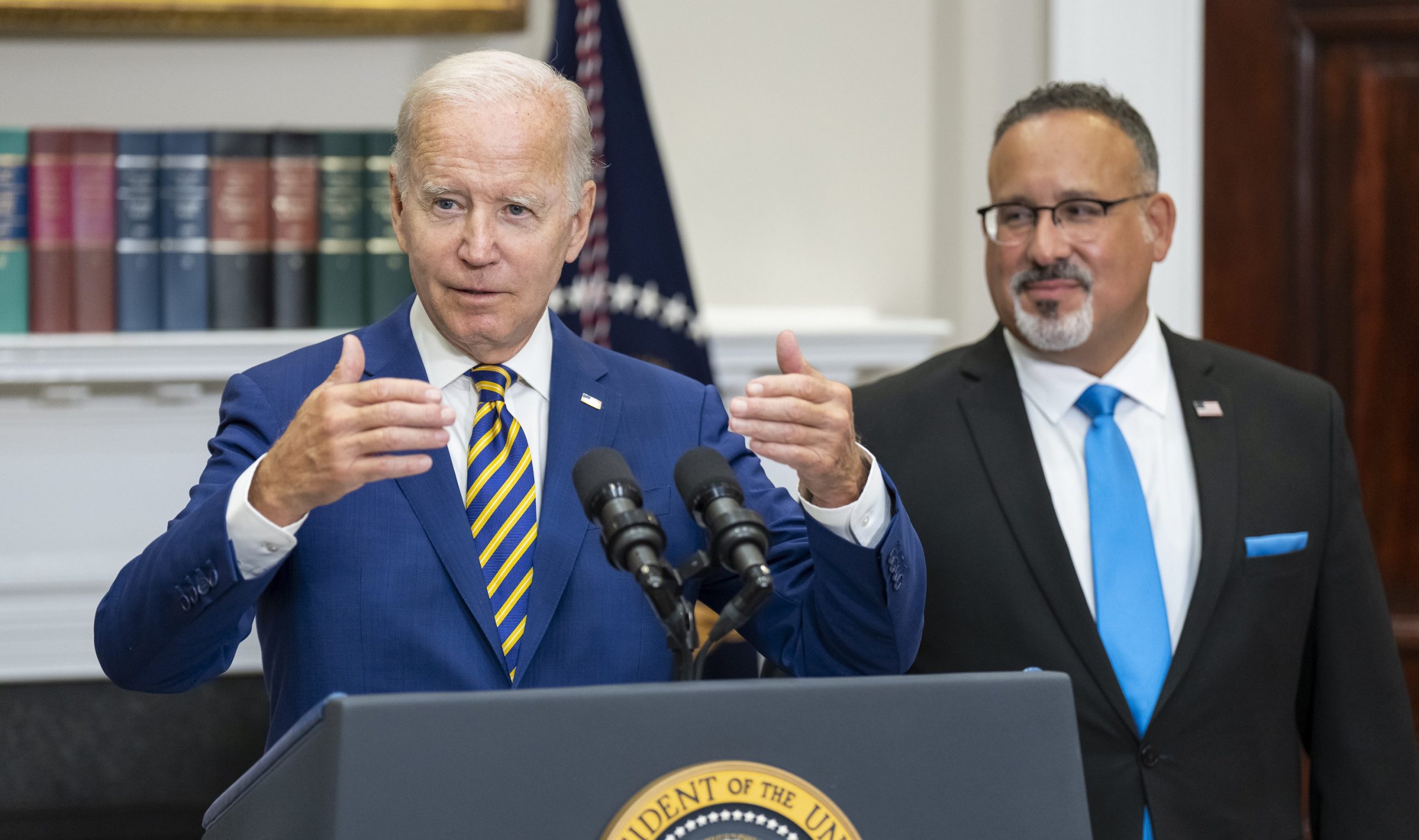EMERGENCY DOCKET
Barrett denies Wisconsin group’s request to block Biden’s student-loan relief plan

on Oct 19, 2022 at 9:22 pm

Update (Oct. 20, 6:15 p.m.): This article has been updated to reflect Justice Amy Coney Barrett’s action on Thursday evening.
Justice Amy Coney Barrett on Thursday denied a Wisconsin taxpayers group’s bid to block the Biden administration’s student-loan forgiveness program while litigation over the program continues in a lower court. Barrett acted alone, without referring the matter to the full court or asking the government to respond.
Barrett’s denial came just one day after the group came to the Supreme Court. Telling the justices that the program would result in “a gargantuan increase in the national debt accomplished by a complete disregard for limitations on the constitutional spending authority,” the group urged the justices to act quickly to put the program, which goes into effect on Sunday, Oct. 23, on hold.
The group’s request went to Barrett because she handles emergency requests from Wisconsin and neighboring states. Barrett’s decision not to refer the request to the full court indicates that she did not view it as a close call.
President Joe Biden announced the program, which will cancel as much as $20,000 in federal student loans for borrowers who qualify, on Aug. 24. He relied on the Higher Education Relief Opportunities for Students Act of 2003, a law passed in the wake of the Sept. 11 attacks that allows the federal government to make changes to student-loan programs to respond to national emergencies. Loan forgiveness, the administration said, is justified under that law as a response to the COVID-19 pandemic.
The Brown County Taxpayers Association went to federal court in Wisconsin, seeking to bar the Biden administration from canceling student loan debt. U.S. District Judge William Griesbach threw out the lawsuit, ruling that the group does not have standing to sue. To sustain a lawsuit in federal court, plaintiffs must show that they have suffered (or likely will suffer) particular, concrete harm from the defendant’s conduct. Under Supreme Court precedent, plaintiffs generally cannot satisfy this standing requirement merely by alleging that a challenged governmental policy will harm the public fisc or will increase taxes overall. Griesbach wrote that the Wisconsin group is seeking to proceed with its lawsuit under “an exception to the general rule against federal taxpayer standing.”
After the U.S. Court of Appeals for the 7th Circuit rejected the group’s request to freeze the loan-forgiveness program while it appealed, the group came to the Supreme Court seeking immediate relief.
The group acknowledged that the standing question has been a “stumbling block” in challenges to the loan-forgiveness plan, but it blamed the Biden administration, which it accused of modifying the plan to make it harder to challenge. Under the Supreme Court’s precedent, the group contended, it does have standing because its suit challenges the administration’s exercise of the taxing and spending powers that the Constitution reserves for Congress.
But if the group does not have standing under the Supreme Court’s existing case law, the group continued, the justices should alter that case law to allow a challenge to the Biden administration’s “massive and unprecedented usurpation of Congressional spending power.” Otherwise, the group argued, the president will be able to “unilaterally forgive debt owed to the United States Treasury” – a scenario that “threatens the very foundations of a constitutional republic.”
The group contended that the loan-forgiveness program – which, it wrote, could cost more than one trillion dollars – also runs afoul of the “major questions” doctrine, a judicially created approach to statutory interpretation requiring a clear statement from Congress that it intends to give a federal administrative agency the power to make “decisions of vast economic and political significance.” There is no “national emergency” justifying the Biden administration’s reliance on the HEROES Act, the group added. To the contrary, the group stressed, Biden announced the program only after he pronounced the pandemic over.
This article was originally published at Howe on the Court.


